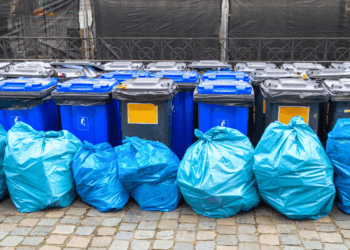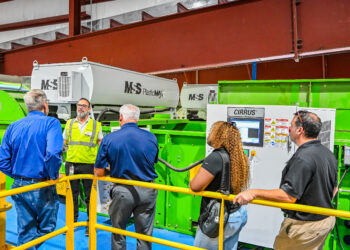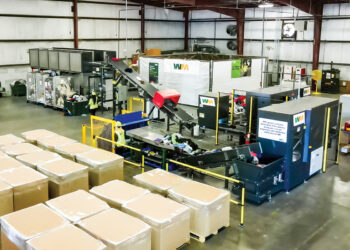Resource Recycling News
RCI, CurbWaste partner on waste management software
CurbWaste now provides the operational management and data platform for the Recycling Certification Institute, which works to improve transparency in...
Battery fire risk isn’t going away. Insurance is responding
In 2026, insurability may depend on how convincingly facilities can demonstrate they are both preventing ignition and limiting catastrophic loss...
Arizona, Reynolds reach settlement on Hefty bag lawsuit
Arizona reached a settlement with Reynolds Consumer Products requiring the company to overhaul packaging nationwide.
WM opens new $90m MRF in south Florida
The new facility is expected to process the most volume of recyclables in the hauler's MRF network.
Minnesota publishes prelim EPR assessment
The report will inform recommendations featured in the next report to develop the state's EPR program for packaging.
Vermont’s battery stewardship law targets fire risk
The state's new law gives residents more options to safely dispose of everything from single-use alkaline batteries to medium-format e-bike...
Where textile MRFs fit in a global recovery system
As questions about sorting locally intensify, the concept of a domestic textile MRF has gained attention.
SWANA, Fire Rover partner on reporting tool
Industry stakeholders can use the new site to report fires occurring at their facilities or in vehicles, to help support...
Nebraska awards $7m in recycling grants
The grants will help fund waste and litter reduction projects, recycling programs, and costs to collect scrap tires, HHW, electronic...
Republic Services waiting on fourth Polymer Center
The nationwide hauler said higher Polymer Center volumes helped offset lower recycled commodity prices in 2025, with a third in...






















